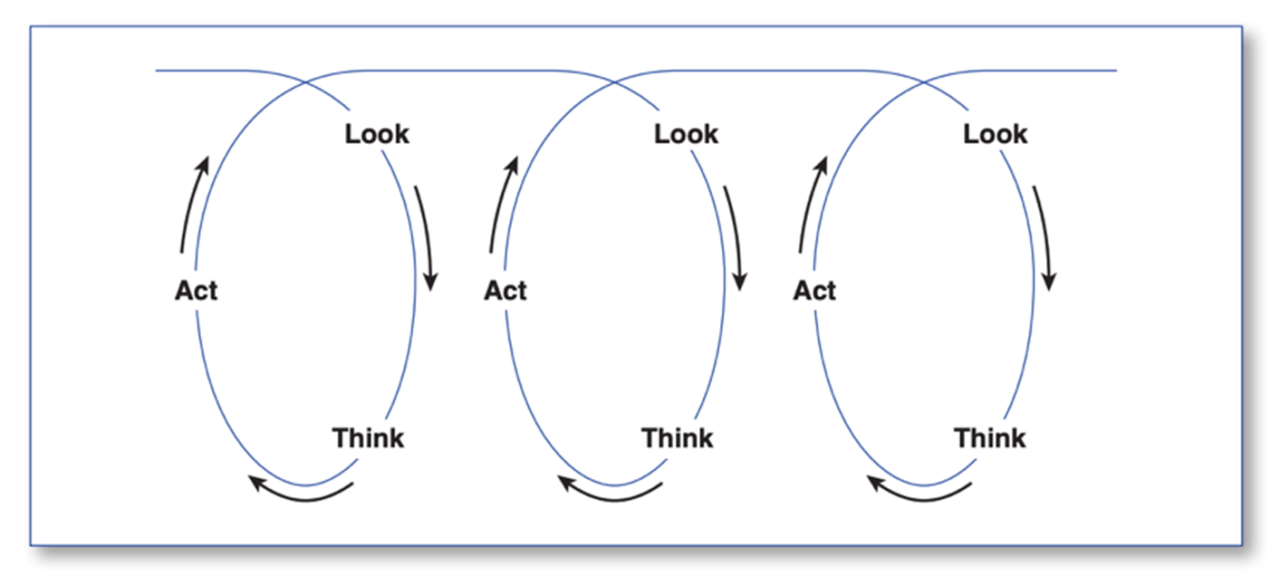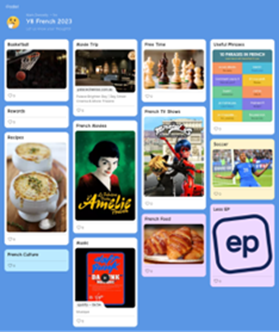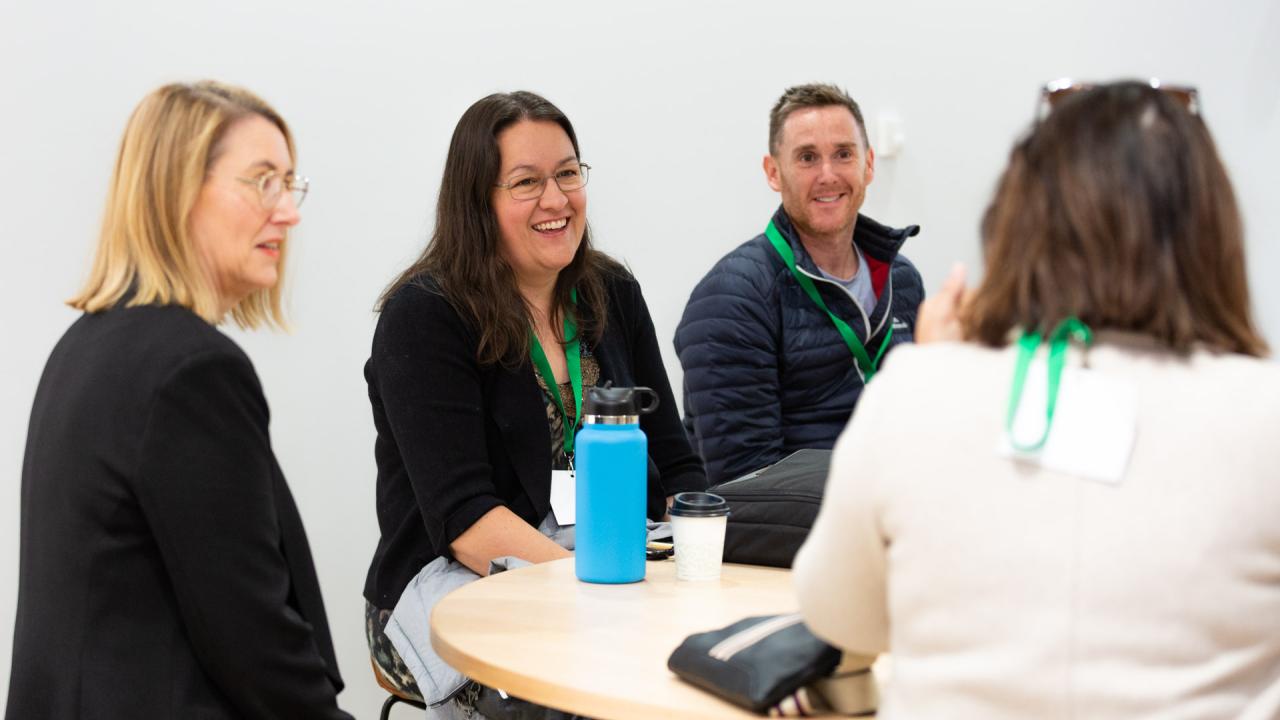02 Aug 2024
Teacher Feature - Unleashing the ‘Je Ne Sais Quoi’

Mark Donnelly-Layfield is a Teaching Excellence Program (TEP) graduate and is also a 2024 Teaching Innovation Fellow.
Apply for the Teaching Excellence Program.
Teaching a foreign language can often be challenging, especially when dealing with younger students who may lack intrinsic motivation. In my role as a middle school French teacher, I've encountered such challenges firsthand. This article explores a practitioner inquiry project that aims to enhance the engagement and motivation of Year 8 boys in learning French through innovative pedagogical strategies.
Understanding practitioner inquiry
Practitioner inquiry is a reflective process that allows teachers to examine their practices, identify areas for improvement, and implement changes based on evidence. As Kemmis (2014) states, action research involves planning, acting, observing, and reflecting more systematically and rigorously than in everyday teaching. This cyclical process helps educators address complex problems in education, leading to meaningful and sustainable improvements.

One effective framework for practitioner inquiry is the "Look, Think, Act" model developed by Stringer (2007).
This model emphasises a cyclical process of inquiry with three main phases:
Look:
- Gathering data: collect information and gather data about the issue or situation under investigation through observations, interviews, and document analysis.
- Describing the situation: provide a detailed description of the situation or problem to gain a comprehensive understanding of the context.
Think:
- Analysing data: identify patterns, themes, and insights from the collected data, involving reflection and interpretation.
- Generating insights: develop a deeper understanding of the situation and explore possible solutions through collaborative discussions with stakeholders.
Act:
- Planning action: design strategies, set goals, and determine the steps needed to implement changes based on the insights gained.
- Implementing and evaluating: carry out the planned actions, monitor their effects, and evaluate their impact, involving continuous reflection and adjustment to ensure effectiveness.
The concept of practitioner inquiry is rooted in the belief that teachers are not merely passive recipients of educational policies but active agents capable of shaping their own professional development and student outcomes. According to Cochran-Smith and Lytle (2009), the inquiry process is not a formal process, more a way of work and of being as a teacher. This approach empowers teachers to take ownership of their professional growth by engaging in continuous, reflective cycles of inquiry.
Moreover, practitioner inquiry encourages collaboration and the sharing of insights among educators. This collaborative aspect is crucial in fostering a community of practice where teachers learn from each other's experiences and collectively strive for better educational outcomes.
Developing an action plan
My action plan involved a multifaceted approach that prioritised student voice, agency, and empowerment. One of the most enlightening aspects of this project was the decision to pause and listen to what students were talking about in unstructured, ad hoc conversations. This approach provided invaluable insights into their interests and priorities.

To start, I listened to the students' non-productive classroom talk and actively sought their feedback. Using a Padlet, I encouraged students to anonymously share their ideas for French class activities. This process revealed a variety of interests, from learning useful everyday phrases to incorporating French football-related content. For instance, I overheard conversations about their favourite football matches and players, which informed my decision to integrate football-related content into the curriculum. These moments of informal listening allowed me to connect with my students on a deeper level and tailor the lessons to their genuine interests.
Implementing and monitoring the plan
The first step in implementing the action plan was to introduce students to useful French phrases they could use in everyday conversations. By teaching phrases that they were using in English in the classroom and around the school, I made the learning process more relatable and fun. This approach quickly resonated with the students, creating a buzz in the classroom and even extending to other subjects like maths.
Next, I capitalised on the students' interest in football. Many students were already discussing French football matches and playing FIFA '23 during breaks. By incorporating authentic materials like match highlights and articles, I was able to create engaging language practice activities. This not only improved their vocabulary and comprehension skills but also made learning French more relevant and exciting.
Examining evidence of learning and evaluating impact
To gauge the impact of these strategies, I relied on informal observations, student reflections, and academic performance. The changes were evident in the students' behaviour and attitudes. They were more excited to attend French class, participated actively, and demonstrated a greater willingness to take risks and explore the language.
The positive impact has extended beyond my classroom. Colleagues in the staffroom noticed the changes, with some adopting similar strategies in their own language classes. This collaboration aims to enhance our teaching practices by integrating practitioner inquiry across departments.
Implications for future practice
This inquiry has underscored the importance of practitioner inquiry in fostering professional growth and improving student outcomes. By continuously reflecting on and adjusting our practices, educators can create engaging, student-centred learning environments. The success of this project has inspired me to continue exploring innovative teaching strategies and to encourage my colleagues to do the same.
Conclusion
Teaching is a complex and demanding profession, but through practitioner inquiry, we can make meaningful changes that benefit our students. By listening to their voices, incorporating their interests, and systematically reflecting on our practices, we can create a dynamic and engaging learning environment. As educators, we must remain curious, open to new ideas, and committed to our professional growth.
What are your students talking about during their free time? Is it the upcoming Olympics, Euro 2024, or even Eurovision? These popular events can serve as excellent hooks to capture their interest and integrate into your lessons. By tapping into current events and popular culture, you can make your lessons more engaging and relevant.
Ask yourself: What is your hook? How can you leverage these interests to enhance learning?
The journey may be challenging, but the rewards are well worth the effort.
By Mark Donnelly-Layfield – French teacher and Deputy Head of Middle School (boys) at Haileybury College, Brighton
References
Kemmis, S. (2014). The action research planner: Doing critical participatory action research. Springer Science & Business Media. https://doi.org/10.1007/978-981-4560-67-2
Stringer, E. T. (2007). Action research (3rd ed.). Sage Publications.






